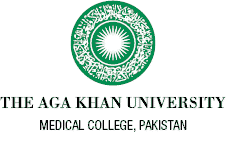Undergraduate teaching
MBBS
Medical students rotate through Orthopaedics for a 4-week period, during which they learn Orthopaedic clinical skills and gain knowledge of common musculoskeletal disorders through exposure to clinics, ward rounds, emergency rooms, and operating rooms.
Postgraduate teaching
Internship programme
Interns rotate for a 2-month period in Orthopaedics where they learn to check Orthopaedic patients. They learn pre-operative and post-operative management of patients. They also participate in the management of emergency cases during their 1-in-4 days on call. Apart from other clinical activities, they learn skills like Orthopaedic wound management, plaster, and splinting techniques. They also learn in teaching sessions and give presentations on topics such as management of fracture, polytrauma, adult respiratory distress syndrome, and cardiopulmonary resuscitation.
Residency programme
The Orthopaedic residency is a structured training programme. It is one of the best residency programmes in the country. Orthopaedic residents are inducted following core training in General Surgery and clearing the Intermediate Module from the College of Physicians and Surgeons. During training, they are imparted various clinical and operative skills along with core knowledge. Orthopaedic residents have a very hectic schedule of clinical assignments in the operating room, emergency room, and out-patient clinic. They have weekly academic sessions such as Resident's review, Core curriculum, Radiology, Indication, and Morbidity & Mortality meeting. Apart from these, there are monthly academic sessions including the Journal club, tumor board, and Orthopaedic City meeting.
Fellowship programme
Presently the Orthopaedic Section in the Department of Surgery offers two fellowship training in Orthopaedic subspecialties.
Limb deformity and correction Fellowship under collaboration with POA
The “Deformity Correction and Limb Lengthening Fellowship" is one of its kind in the section of Orthopaedics. It helps in managing a wide range of limb injuries including open fractures, complex and neglected trauma, and complications of inappropriately managed trauma. The fellowships will be an effective part of or build a team of orthopaedic surgeons to provide state-of-the-art Ilizarov services back at their home institution. They will be able to evaluate the deformity and do adequate pre-operative planning. They also perform safe care surgery with available resources to maximize the benefit to the patient. The fellowships deal with intra-operative and post-operative complications. They carry out observational as well as interventional research work on Transosseous osteosynthesis and related topics.
Arthroplasty Fellowship
The fellowship in Arthroplasty equips the fellows to be competent in the diagnosis, evaluation, and management of degenerative, inflammatory, and post-traumatic arthritis of the hip and knee. The fellow is also well-versed in the principles of revision hip and knee arthroplasty, as well as the treatment of young adult hip and knee disorders. By the end of the fellowship, the fellow should be capable of independently performing primary total hip and total knee arthroplasty.


